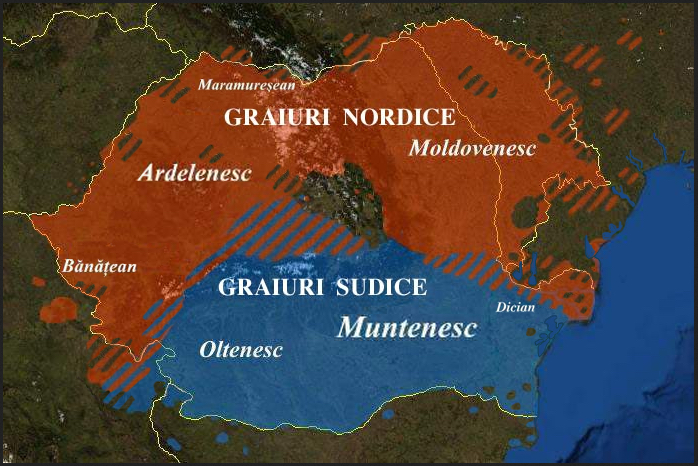Mirc
Not mIRC!!!
Really, the difference between "dialect" and "language" is imprecise, the definition consists of lines and boundaries drawn on a smooth continuum of different and where the line gets drawn is often utterly political--often because national languages get constructed by states, rather than being the basis on which a state is formed.
I completely agree.
The only problems with Romanian and Moldovan are that:
1) what Romance language they speak in the region of Moldova is identical in any region of Moldova (and Moldova the region is twice as big as Moldova the country, being currently divided between Romania, the western part, Moldova, the eastern part, and Ukraine, extreme south-east and north-west), so there is NO difference between their way of talking in the Republic of Moldova and the way of talking of people from northeastern Romania (where my family actually happens to be from, although being born in Bucharest - no accent).
2) what they speak there cannot be considered a dialect by any standards, it is an accent, in fact I would venture to say Southern British English is farther to American English than Romanian is to Moldovan. They are fully 100% mutually intelligible, they are written exactly the same (although Moldovan has a Cyrilic variant spelling too). "Moldovan" might use a few old words that have gotten out of use in Romania, and they pronounce their "E"s, "L"s, and "Pi"s funny, apart from that I could not see any difference whatsoever.
Spoiler :
Romanian varieties:

As you can see, Romanian is spoken the same in Moldova the Republic, in Moldova the Romanian region, and in the southeast and northwest of Moldova, in the territories taken by the Soviet Union from the Kingdom of Romania in WW2. In fact, if it wasn't for Bucharest's exaggerated population, making up 10% of the country, the Moldovan accent would be the most spoken!!
source of the image: http://en.wikipedia.org/wiki/Moldovan_language

As you can see, Romanian is spoken the same in Moldova the Republic, in Moldova the Romanian region, and in the southeast and northwest of Moldova, in the territories taken by the Soviet Union from the Kingdom of Romania in WW2. In fact, if it wasn't for Bucharest's exaggerated population, making up 10% of the country, the Moldovan accent would be the most spoken!!
source of the image: http://en.wikipedia.org/wiki/Moldovan_language


 There is really no slow transition. I mean, yes - people in Northern Moravia, the Czech Silesia or whatever you want to call it, speak a different dialect (they have a very distinct accent and use different words, some of them taken from Polish), but you can understand them pretty well. Then you cross the border and the people speak Polish. You don't understand them naturally, you have to really try and put your brain into work until you realize what they're saying. The grammar is different, they use archaic (from Czech point of view) sentence composition, the written form is entirely different etc. The transition is pretty sharp even at the Czech-Slovak border, the difference there is that we understand Slovaks much better.
There is really no slow transition. I mean, yes - people in Northern Moravia, the Czech Silesia or whatever you want to call it, speak a different dialect (they have a very distinct accent and use different words, some of them taken from Polish), but you can understand them pretty well. Then you cross the border and the people speak Polish. You don't understand them naturally, you have to really try and put your brain into work until you realize what they're saying. The grammar is different, they use archaic (from Czech point of view) sentence composition, the written form is entirely different etc. The transition is pretty sharp even at the Czech-Slovak border, the difference there is that we understand Slovaks much better. As well as the small little holes on the border with Hungary. I doubt the hole goes that far south, but I doubt that Romanian is as spread in Serbia as it's shown, too (I mean mainly the northern red point in Serbia, which is just a few towns and villages as far as I know).
As well as the small little holes on the border with Hungary. I doubt the hole goes that far south, but I doubt that Romanian is as spread in Serbia as it's shown, too (I mean mainly the northern red point in Serbia, which is just a few towns and villages as far as I know).

